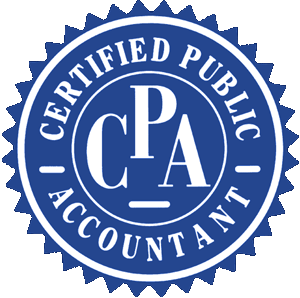The Certified Public Accountant (CPA) license is a prestigious and widely respected credential in the field of accounting and auditing in the United States. This license is essential for professionals who aspire to excel in the accounting industry, providing them with the authority and qualifications needed to perform a variety of critical tasks. In this article, we will delve into the definition and importance of the CPA license, explore the requirements for obtaining it, discuss the role of CPAs in accounting and auditing, and examine the benefits and career opportunities available for licensed CPAs.
Understanding the CPA License: Definition and Importance
The Certified Public Accountant (CPA) license is a professional designation granted to individuals who meet specific educational and professional requirements and pass the Uniform CPA Examination. This license signifies a high level of expertise and commitment to the accounting profession. It is recognized nationwide and is often considered the gold standard for accountants.
The importance of the CPA license cannot be overstated. It serves as a mark of credibility and competence, demonstrating that the holder has met rigorous standards set by the state boards of accountancy. This credential is essential for those who wish to offer public accounting services, such as auditing, tax preparation, and consulting, to clients.
Moreover, the CPA license is crucial for career advancement. Many employers prefer or require their accounting professionals to hold this certification, as it assures them of the individual’s proficiency in financial reporting, auditing, and regulatory compliance. It also opens doors to leadership positions within firms and organizations, as well as opportunities in academia and government.
In addition, the CPA license is a testament to an individual’s ethical standards. CPAs are bound by a code of professional conduct that requires them to act with integrity, objectivity, and due care. This ethical commitment is vital in maintaining public trust in the financial information provided by accountants.
Furthermore, the CPA designation enhances professional mobility. Since the license is recognized across all states, CPAs can transfer their credentials relatively easily, allowing them to work in different regions without needing to obtain additional certifications. This flexibility is particularly valuable in today’s globalized economy.
Lastly, the CPA license provides a competitive edge in the job market. With the increasing complexity of financial regulations and the growing demand for transparency and accountability, the expertise of CPAs is more valuable than ever. Holding this credential can significantly enhance an individual’s job prospects and earning potential.
Requirements for Obtaining a CPA License in the USA
Obtaining a CPA license in the USA involves meeting several stringent requirements, which vary slightly by state but generally follow a common framework. The first major requirement is education. Prospective CPAs must complete a bachelor’s degree with a specified number of credit hours in accounting and related subjects. Most states require at least 150 credit hours of education, which is typically more than a standard four-year bachelor’s degree.
The next requirement is passing the Uniform CPA Examination, a comprehensive and challenging test that assesses an individual’s knowledge and skills in accounting. The exam is divided into four sections: Auditing and Attestation, Business Environment and Concepts, Financial Accounting and Reporting, and Regulation. Candidates must pass all four sections within an 18-month period to qualify for licensure.
In addition to education and examination, most states require candidates to gain relevant work experience. This experience must be supervised by a licensed CPA and typically involves one to two years of practice in accounting, auditing, or tax preparation. The exact requirements for work experience can vary, so candidates should check with their state’s board of accountancy for specific details.
Ethics is another critical component of the CPA licensure process. Many states require candidates to pass an ethics examination or complete an ethics course. This requirement underscores the profession’s commitment to maintaining high ethical standards and ensuring that CPAs act with integrity and professionalism.
Continuing professional education (CPE) is also a key requirement for maintaining a CPA license. CPAs must complete a certain number of CPE hours annually or biennially to stay current with changes in accounting standards, regulations, and best practices. This ongoing education ensures that CPAs remain knowledgeable and competent throughout their careers.
Finally, candidates must apply for licensure through their state’s board of accountancy and pay the necessary fees. The application process includes submitting proof of education, exam scores, work experience, and any additional documentation required by the state. Once approved, candidates receive their CPA license, allowing them to practice as certified public accountants.
The Role of CPAs in Accounting and Auditing
Certified Public Accountants (CPAs) play a vital role in the fields of accounting and auditing, serving as trusted advisors and experts in financial matters. One of their primary responsibilities is to conduct audits of financial statements for businesses, non-profits, and government entities. These audits provide assurance that the financial statements are accurate, complete, and in compliance with applicable accounting standards.
In addition to auditing, CPAs are involved in preparing and reviewing financial reports. They ensure that these reports accurately reflect the financial position and performance of an organization. This work is critical for decision-making by management, investors, creditors, and other stakeholders who rely on accurate financial information.
CPAs also provide tax-related services, including tax preparation, planning, and compliance. They help individuals and organizations navigate complex tax laws, maximize tax benefits, and ensure compliance with federal, state, and local tax regulations. Their expertise in tax matters can result in significant savings and help clients avoid legal issues.
Advisory and consulting services are another important aspect of a CPA’s role. CPAs offer strategic advice on a wide range of financial and business issues, such as mergers and acquisitions, risk management, internal controls, and financial planning. Their insights and recommendations help organizations achieve their financial goals and improve operational efficiency.
Furthermore, CPAs are often involved in forensic accounting, which involves investigating financial discrepancies and fraud. They use their skills to detect and analyze financial irregularities, provide litigation support, and serve as expert witnesses in legal proceedings. This work is essential in combating financial crime and ensuring the integrity of financial systems.
Lastly, CPAs contribute to the development and implementation of accounting policies and procedures. They stay abreast of changes in accounting standards and regulations and ensure that their organizations or clients adhere to these requirements. Their expertise helps maintain the accuracy and reliability of financial reporting and supports the overall financial health of the entities they serve.
Benefits and Career Opportunities for Licensed CPAs
Licensed CPAs enjoy numerous benefits and career opportunities, making this credential highly sought after in the accounting profession. One of the most significant benefits is job security. The demand for CPAs remains strong due to the essential services they provide in financial reporting, auditing, and tax compliance. This demand translates into a stable and rewarding career.
Another major benefit is the potential for higher earnings. CPAs typically command higher salaries than their non-licensed counterparts, reflecting their advanced skills and expertise. This earning potential can increase significantly with experience, specialization, and career advancement into senior roles such as CFO or partner in an accounting firm.
CPAs also have a wide range of career opportunities available to them. They can work in public accounting firms, providing audit, tax, and consulting services to a variety of clients. Alternatively, they can pursue careers in corporate accounting, where they manage financial operations, budgeting, and internal controls for businesses of all sizes. Government agencies, non-profits, and educational institutions also seek the expertise of CPAs for their financial management and reporting needs.
In addition to traditional accounting roles, CPAs can specialize in areas such as forensic accounting, financial planning, information technology, and environmental accounting. These specializations allow CPAs to tailor their careers to their interests and strengths, further enhancing their job satisfaction and professional growth.
The CPA license also offers opportunities for professional recognition and leadership. CPAs are often viewed as leaders in their field, and their opinions and advice are highly valued. This recognition can lead to roles in executive management, board memberships, and influential positions within professional organizations.
Finally, the CPA credential provides a strong foundation for entrepreneurial endeavors. Many CPAs choose to start their own accounting firms or consulting practices, leveraging their expertise and reputation to build successful businesses. This entrepreneurial path offers the freedom to choose clients, set work schedules, and pursue personal and professional goals.
In conclusion, the CPA license is a cornerstone qualification for accounting and auditing professionals in the USA. It signifies a high level of expertise, ethical commitment, and professional competence. By understanding the requirements for obtaining a CPA license, recognizing the critical role CPAs play in accounting and auditing, and appreciating the benefits and career opportunities available to licensed CPAs, aspiring accountants can make informed decisions about pursuing this esteemed credential. For more information on preparing for the CPA exam, visit CPA Test Bank.

